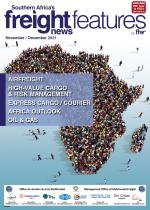Without urgent and coordinated government interventions, a commercially viable, economically and environmentally sustainable southern African air transport industry will remain unattainable, according to the Airlines Association of Southern Africa (A ASA).The latest OAG data for southern Africa reveal that scheduled capacity is 45.7% down this month on what it was in October 2019 and almost 43% down on January 2020, just before the pandemic took hold around the world. Given that connectivity fell by more than 90% with the start of the lockdowns, this is considered a significant improvement, but, said A ASA's CEO, Aaron Munetsi, aviation was still suffering.“Our region is the second-worst affected worldwide after South East Asia, where supply is still over 70% down on pre-Covid levels. Our performance is no doubt skewed by the radical downsizing of SA A and the exits of both SA Express and Air Namibia,” he said during an online keynote address at A ASA’s 51st annual general assembly. “At the same time, yields remain wafer-thin and there is very little elasticity in the market. We have also been burdened with increased costs, especially jet fuel, which, at a world average price of $96.77 a barrel, is now 116% more expensive than it was this time last year.”Munetsi said the region was particularly vulnerable now that jet fuel was no longer produced in South Africa and industry was completely reliant on imported stocks.“We are in a fragile and vulnerable space and we urgently require governments to use the levers at their disposal to provide the relief that airlines need if they are to continue to provide the connectivity between markets that is the lifeblood of every modern, sophisticated and aspirational country.”He emphasised the need for financial support for the entire air transport ecosystem, regardless of ownership, saying the airline industry was highly interdependent. “It makes no sense for governments to polish, oil and grease one component if the rest of the engine is left unlubricated and grinds to a halt.”Munetsi, however, warned against state bailouts saying that without reform or repayments they were unpalatable and unaffordable. “A model that has worked well in some countries, notably the US, Germany and France, is a form of tightly defined short-term state equity in return for liquidity or guarantees. As carriers began generating revenues so those governments have been able to sell back their equity positions.”He said those governments stepped in because they could see the bigger picture and the catastrophic damage that would be done to their economies and their development if they did not safeguard their aviation sector.

